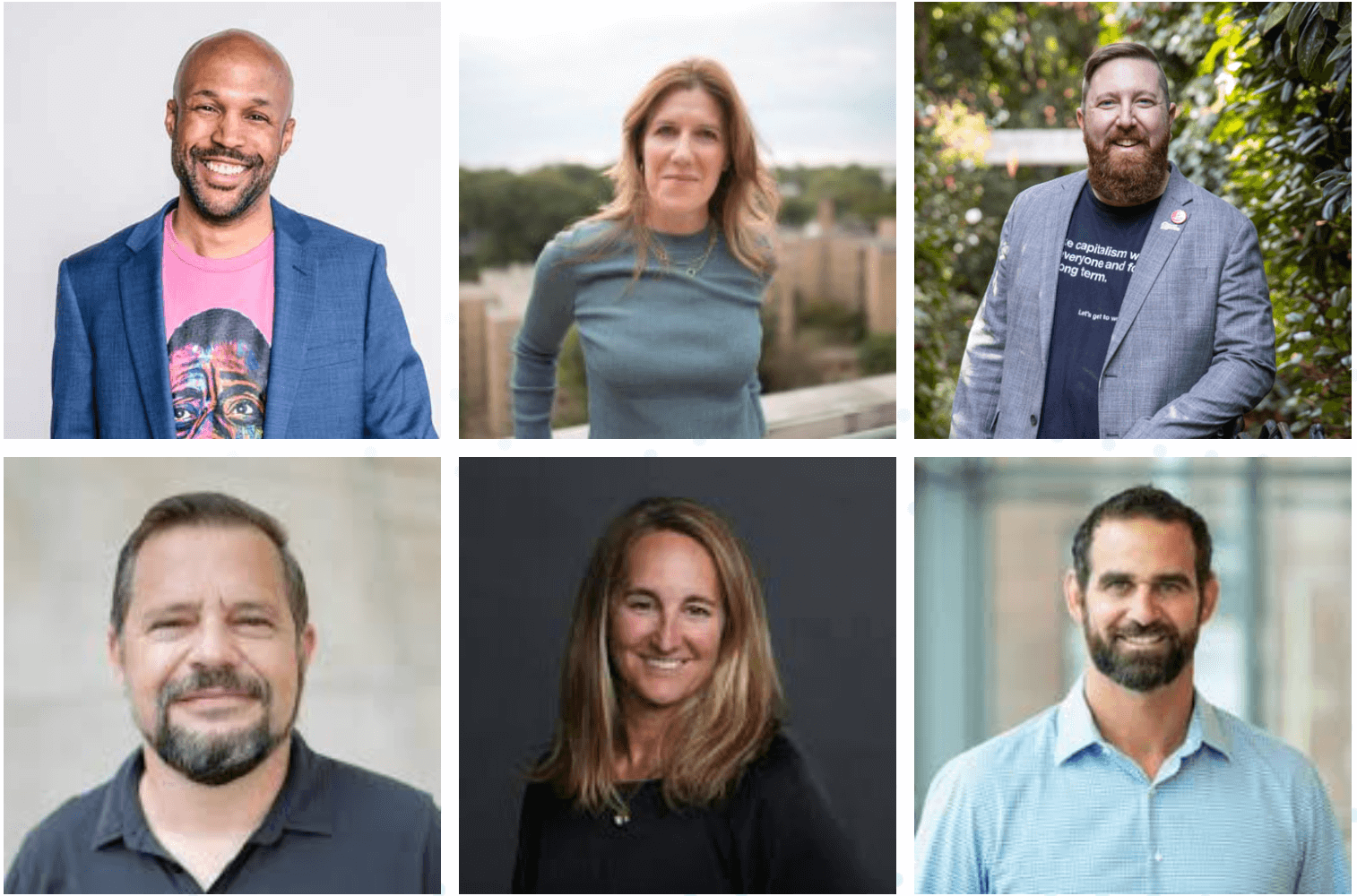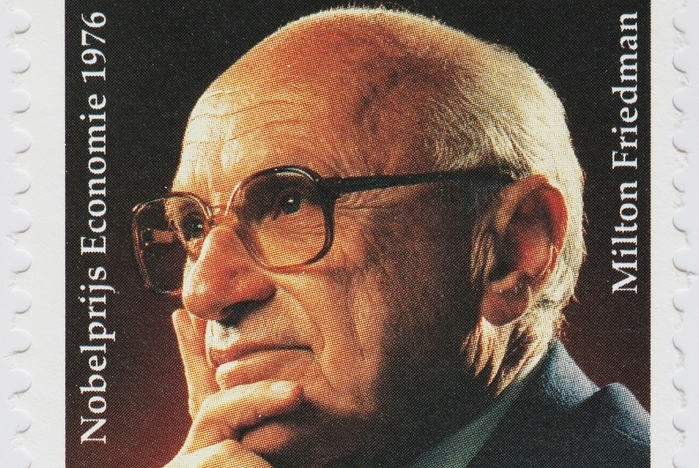When it comes to reimagining capitalism, some leaders and organizations confront power with campaigns, demands, demonstrations and grassroots and community organizing.
Others try to build bridges across differences by emphasizing collaboration, shaping conversations, nudging behavior-change and rewarding best practices.
Building a robust and effective movement for change means forging an understanding of how to leverage diverse approaches in the service of shared goals.
The New Capitalism Project, an 18-month effort to model that emergent movement and the new economic system it is already creating, enlisted a dozen leaders to participate in a collective strategy process that is still ongoing. Participants in the project, backed by Omidyar Network, the Ford and Rockefeller foundations and other funders, will present the first public briefing on their work on ImpactAlpha’s Call No. 35: Capitalism Reimagined, on Tuesday, Nov. 30 (RSVP).
The project challenged itself to recruit a diverse design team across race, ethnicity and gender. And drawing on a framework developed by Steve Waddell, the New Capitalism Project also identified approaches along the axes from confrontation to collaboration and from destruction to creation. For shorthand, the project labeled these archetypes Warriors, Entrepreneurs, Missionaries and Lovers.
“We intentionally sought a mix of inside-game and outside-game leaders and organizations,” said Anna Muoio, the consultant who is leading the effort. “Those who move not just through collaboration in driving change, but also those who engage in change through confrontation.”
Design team
The dozen leaders worked through a set of questions in an effort to arrive at “a more unified and positive version of the future.” All of the leaders and organizations are working toward some version of an inclusive, sustainable, equitable, regenerative, just, multiracial, restorative, conscious, circular, solidarity, well-being, liberation economy for all, according to a summary of the project’s work to date. But the project’s early work made clear the lack of a shared vision of what such a system might really look like. “It’s not just semantics,” one leader said. “People do mean different things.”
Impact investing, for example, which likes to see itself as a force for good, was called out by one of the leaders as playing into the hands of the problem itself, “privatizing things that have been in the public sphere, taking action without democratic mandate and accountability.”
“We also strove to include more activist-leaning organizations,” Muoio said. The project is aiming to present a set of ideas for collaborative funder support by the end of January.
The design team included: Amit Bouri of the Global Impact Investing Network; B Lab’s Andrew Kassoy; Amalgamated Bank’s Bill Dempsey; Carol Anne Hilton of the Indigenomics Institute, SEIU’s Edgar Hernández, Majority Action’s Eli Kasargod-Staub; Fran Seegull of the U.S. Impact Investing Alliance; Imperative 21’s Jay Coen Gilbert; Jeremie Greer of Liberation in a Generation; PolicyLink’s Mahlet Getachew; Meredith Sumpter of the Coalition for Inclusive Capitalism; and Rodrigo Garcia from the office of the Illinois state treasurer.
“The design team put in the time—and sweat—to understand how each sees the current failures of our economic system,” Muoio said. “And then to imagine, courageously and collectively, what a better future could look like.”
Four members of the team agreed to talk about the New Capitalism Project’s work on The Call on Tuesday. They are:
Carol Anne Hilton, Indigenomics Institute
Indigenous people worldwide have been systematically excluded from economic prosperity, land and basic human rights. Carol Anne Hilton founded the Indigenomics Institute to redesign and rebuild modern economic systems with an Indigenous worldview.
“It’s about finding and creating opportunities that work for each individual Indigenous community,” said Hilton, a member of Hesquiaht First Nation from Vancouver Island in British Columbia.
Hilton is on a mission to help grow Canada’s Indigenous economy to $100 billion (a 2011 study pegged Canada’s Indigenous economy at $24 billion) Indigenomics flips the perception of Indigenous peoples to emphasize empowerment and resilience.
“I come from over 10,000 years of the potlatch tradition of giving and demonstration of wealth, connection and relationship,” Hilton writes in her book, Indigenomics.
“There is no socio-economic gap, only Indigenous economic displacement and upholding of the conditions of Indigenous economic regression,” she says. “We need consistent demonstrable data points to demonstrate beyond the gap and understand actual Indigenous economic design, impact and outcomes today.”
Amit Bouri, Global Impact impacting Network
As a consultant with the Monitor Institute more than a decade ago, Bouri co-founded “the GIIN” when impact investing assets under management were tallied in the single-digit billions. As the head of impact investing’s de facto industry group, Bouri has supported the industry’s growth to nearly a trillion dollars in assets.
Bouri is pushing the GIIN to go beyond impact investing to all of investing – and to the economic system as a whole.
“There is still too much capital sitting on the sidelines,” says Bouri. The movement for a new capitalism will require investors to rethink the power of capital and “take a broader, longer-term view about the value investments create for people, for communities, and for the planet.”
Bouri wants the New Capitalism Project to reflect the best principles and practices of impact investing. In a transformed economic system, “impact investments will be a viable option for every investor, from retail to institutional,” he says. “Businesses and investors will hold themselves accountable to multiple sets of stakeholders.” The concept of ‘externalities’ will be relegated to history, he says, and finance theory will account for risk, return, and impact.
Says Bouri, “It is time for a new status quo that thinks about investment capital in an entirely new way.”
Eli Kasargod-Staub, Majority Action
This past proxy season, climate-conscious shareholders flexed their muscles, securing historic wins at companies from Exxon and Chevron to DuPont. Egging them on was Majority Action, a nonprofit that seeks to empower shareholders – and hold corporations accountable.
Eli Kasargod-Staub, who earlier headed research for the Service Employees International Union has helped, has aimed Majority Action at ESG laggards. The group tracks the votes of large asset managers that have the power to push companies to change – or enable their inaction. “Nothing less than a wholesale transformation from the utility, finance, and oil and gas sectors will be sufficient to stem the effects of catastrophic climate change — which will only take place if investors hold their boards accountable,” he writes.
The group is not afraid to name and shame. It called out Fidelity, Vanguard, BNY Mellon, T. Rowe Price, Wellington, and JPMorgan Asset Management for supporting “status-quo governance of climate risks” by voting for more than 98% of management-sponsored directors at climate-critical companies.
“Proxy voting by asset managers with over $1 trillion in AUM remained insufficient to the scale and urgency of the climate crisis,” Majority Action concluded in its post mortem of climate-related votes. The largest asset manager, BlackRock, voted for just two of the four insurgent board directors nominated to Exxon’s board.
“BlackRock is supporting the insurgent candidates and handcuffing them at the same time,” Kasargod-Staub told ImpactAlpha after the vote. Majority Action is pushing fund managers to set higher expectations for companies in next spring’s proxy season – and to vote against directors that don’t abide. Consider yourself warned.
Meredith Sumpter, Coalition for Inclusive Capitalism
The coalition was founded in 2014 by Lynn Forester de Rothschild, a lawyer who founded a ran a string of successful media companies and is married to Sir Evelyn de Rothschild, a member of the famous finance family.
Sumpter is CEO of the coalition, as well as of a related group that has worked the Vatican since Pope Francis signaled his interest in impact investing in his 2015 encyclical, Laudato Si (see Agent of Impact, Cardinal Peter Turkson). The coalition pulled together a bipartisan commission in 2019 that outlined a framework for a new social compact between business, government and workers.
Sumpter earlier headed research and strategy for Eurasia Group and led strategy for corporations operating across Asia. She served as a diplomat in the U.S. embassy in Beijing and as a Senate staffer; she was raised in rural Alaska.
This spring, the coalition helped pull together a call with more than 100 corporate leaders to discuss non-partisan ways to safeguard voting rights and U.S. democracy. “These business leaders know progress will only be made when we act inclusively, with fair measures that expand voter access,” Sumpter said at the time.
More recently, she has advocated for the Securities and Exchange Commission to adopt rules requiring companies to disclose diversity, pay levels and staff turnover.
“That’s an important step toward the accountability we need from executives to ensure workers are included in the pandemic economic recovery,” she wrote with ShareAction’s Paul Dickinson. “Investors are increasingly demanding such information as they take a broader view of what determines corporate success.”
ImpactAlpha’s Jessica Pothering, Amy Cortese and Dennis Price contributed reporting.











